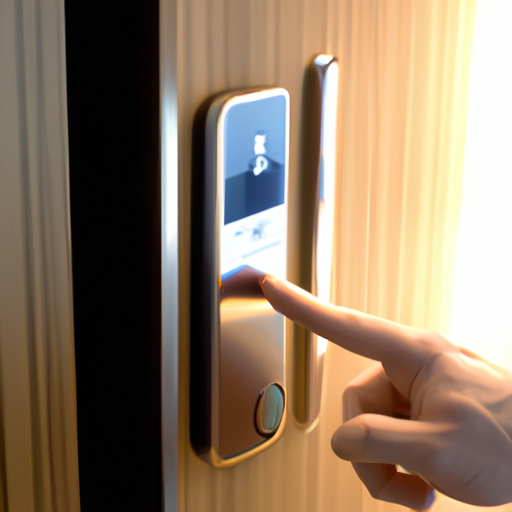
The Importance of Data Management in the Hospitality Industry
In today’s digital age, data has become a valuable asset for businesses across various industries. The hospitality industry is no exception, as hotels strive to provide personalized experiences to their guests. Effective data management plays a crucial role in empowering hotels with the control they need to deliver exceptional service.
Data management involves the collection, storage, and analysis of guest information. This includes personal details such as names, contact information, and preferences, as well as transactional data like booking history and spending patterns. By effectively managing this data, hotels can gain valuable insights into their guests’ preferences and behaviors, allowing them to tailor their services accordingly.
One of the key benefits of data management in the hospitality industry is the ability to create personalized experiences for guests. By understanding their preferences, hotels can anticipate their needs and provide customized recommendations. For example, if a guest has a preference for a certain type of room or a specific dining experience, the hotel can ensure that these preferences are met, enhancing the overall guest experience.
Data management also enables hotels to improve their operational efficiency. By analyzing guest data, hotels can identify trends and patterns that can help them optimize their operations. For instance, if a particular service or amenity is in high demand, hotels can allocate resources accordingly to meet the needs of their guests. This not only improves guest satisfaction but also helps hotels maximize their revenue potential.
Furthermore, data management allows hotels to enhance their marketing efforts. By segmenting their guest database based on various criteria such as demographics, preferences, and past behavior, hotels can target their marketing campaigns more effectively. This ensures that the right message reaches the right audience, increasing the chances of conversion and repeat business.
In addition to personalization, operational efficiency, and marketing effectiveness, data management also plays a crucial role in ensuring the security and privacy of guest information. With the increasing prevalence of data breaches and cyber threats, hotels must prioritize the protection of guest data. By implementing robust data management practices, hotels can safeguard sensitive information and comply with data protection regulations.
To effectively manage guest data, hotels need to invest in the right technology and infrastructure. This includes implementing a robust customer relationship management (CRM) system that can centralize and organize guest information. Additionally, hotels should ensure that their data management practices are aligned with industry best practices and comply with relevant regulations.
In conclusion, data management is of utmost importance in the hospitality industry. By effectively collecting, storing, and analyzing guest data, hotels can gain valuable insights that enable them to provide personalized experiences, improve operational efficiency, enhance marketing efforts, and ensure the security and privacy of guest information. Investing in the right technology and infrastructure is crucial for hotels to empower themselves with control over their guest data. With effective data management practices in place, hotels can truly deliver exceptional service and exceed guest expectations.
Best Practices for Collecting and Organizing Guest Data

Managing Guest Data: Empowering Hotels with Control
In today’s digital age, data is king. For hotels, collecting and organizing guest data is crucial for providing personalized experiences and building long-lasting relationships. However, with the vast amount of information available, it can be overwhelming to know where to start. That’s why we’ve compiled a list of best practices to help hotels effectively collect and organize guest data, empowering them with control.
First and foremost, it’s essential to have a clear understanding of what data to collect. While it may be tempting to gather as much information as possible, it’s important to focus on the data that will truly enhance the guest experience. This includes basic details such as name, contact information, and preferences, but also extends to more specific information like dietary restrictions or preferred room amenities. By collecting relevant data, hotels can tailor their services to meet individual needs and exceed guest expectations.
To collect guest data efficiently, hotels should leverage technology. Gone are the days of manually inputting information into spreadsheets. With the right software, hotels can automate the data collection process, saving time and reducing the risk of human error. From online booking systems to mobile apps, there are numerous tools available that streamline data collection and ensure accuracy. By embracing technology, hotels can focus on what matters most – providing exceptional guest experiences.
Once the data is collected, it’s crucial to organize it effectively. A well-structured database is the key to unlocking the full potential of guest data. Hotels should categorize information into different segments, such as demographics, preferences, and past stays. This allows for easy retrieval and analysis, enabling hotels to make data-driven decisions. Additionally, implementing a robust data management system ensures that guest data remains secure and compliant with privacy regulations. By organizing data efficiently, hotels can harness its power to drive business growth.
Another best practice for managing guest data is to regularly update and cleanse the database. Over time, guest information may change, become outdated, or duplicate. By conducting regular audits and removing irrelevant or duplicate data, hotels can maintain a clean and accurate database. This not only improves the efficiency of operations but also enhances the guest experience. After all, there’s nothing more frustrating for a guest than receiving irrelevant offers or outdated information.
In addition to collecting and organizing guest data, hotels should also focus on analyzing it. Data analysis provides valuable insights into guest behavior, preferences, and trends. By leveraging analytics tools, hotels can identify patterns and make informed decisions to optimize their operations. For example, if data shows that a significant number of guests prefer a particular type of room, hotels can allocate resources accordingly. Data analysis empowers hotels to stay ahead of the competition and deliver personalized experiences that keep guests coming back.
Lastly, hotels should prioritize data protection and privacy. With the increasing number of data breaches and privacy concerns, guests are more cautious about sharing their personal information. Hotels must establish trust by implementing robust security measures and being transparent about how guest data is used. By prioritizing data protection, hotels can build strong relationships with guests based on trust and confidence.
In conclusion, managing guest data is a powerful tool that empowers hotels with control. By following best practices for collecting and organizing guest data, hotels can provide personalized experiences, make data-driven decisions, and build long-lasting relationships. From leveraging technology to regularly updating and analyzing data, hotels can harness the full potential of guest data to stay ahead in the competitive hospitality industry. Remember, data is king, and with the right approach, hotels can reign supreme.
Leveraging Guest Data to Enhance Hotel Operations and Customer Experience
In today’s digital age, data is king. It holds immense power and potential for businesses across various industries, including the hospitality sector. Hotels, in particular, can leverage guest data to enhance their operations and provide a personalized customer experience. By effectively managing guest data, hotels can gain valuable insights, streamline their processes, and ultimately empower themselves with greater control.
One of the key benefits of managing guest data is the ability to gain valuable insights into customer preferences and behaviors. By collecting and analyzing data from various touchpoints, such as online bookings, social media interactions, and guest feedback, hotels can understand their guests on a deeper level. This knowledge allows them to tailor their services and offerings to meet individual needs and preferences. For example, if a hotel knows that a guest prefers a certain type of room or has specific dietary requirements, they can ensure that these preferences are met during their stay.
Furthermore, managing guest data enables hotels to streamline their operations and improve efficiency. By centralizing guest information in a secure database, hotels can easily access and update guest profiles, eliminating the need for manual data entry and reducing the risk of errors. This not only saves time but also ensures that accurate and up-to-date information is readily available to all staff members. For instance, if a guest has a specific request or requires assistance, hotel staff can quickly access their profile and provide personalized service, enhancing the overall guest experience.
In addition to improving operations, managing guest data also allows hotels to enhance their marketing efforts. By analyzing guest data, hotels can identify trends and patterns, enabling them to create targeted marketing campaigns. For example, if a hotel notices that a significant number of guests book spa treatments during their stay, they can create a promotional offer specifically for spa services. This targeted approach not only increases the chances of attracting guests but also enhances the overall customer experience by providing relevant and personalized offers.
Moreover, managing guest data can help hotels build long-term relationships with their guests. By keeping track of guest preferences, previous stays, and interactions, hotels can create a personalized and memorable experience for returning guests. For instance, if a guest has previously stayed at the hotel and enjoyed a particular activity or amenity, the hotel can proactively offer the same experience during their next visit. This level of personalization not only fosters guest loyalty but also encourages positive word-of-mouth recommendations, ultimately driving more business for the hotel.
However, it is crucial for hotels to handle guest data responsibly and ensure compliance with data protection regulations. Hotels must prioritize data security and implement robust measures to protect guest information from unauthorized access or breaches. By investing in secure data management systems and training staff on data protection best practices, hotels can build trust with their guests and demonstrate their commitment to safeguarding their personal information.
In conclusion, managing guest data empowers hotels with control over their operations and customer experience. By gaining valuable insights, streamlining operations, enhancing marketing efforts, and building long-term relationships, hotels can leverage guest data to stay ahead in a competitive industry. However, it is essential for hotels to handle guest data responsibly and prioritize data security to maintain guest trust. With the right approach, hotels can harness the power of guest data to provide exceptional service and create memorable experiences for their guests.


